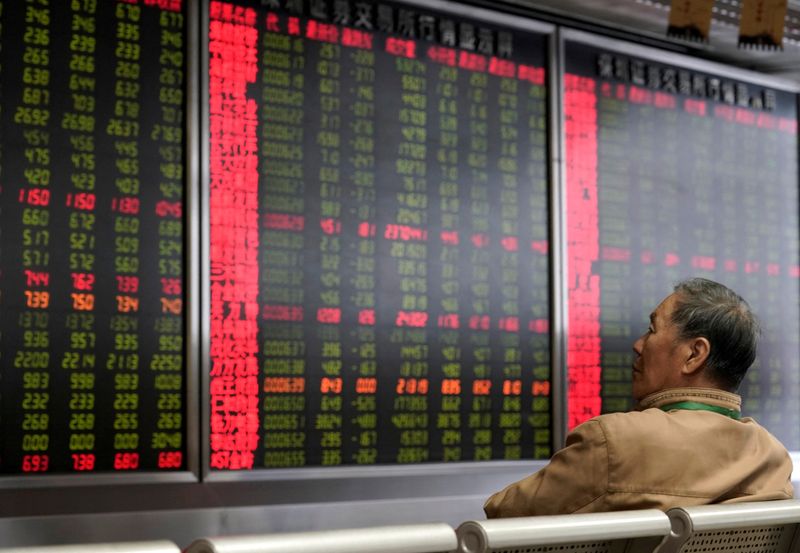SHANGHAI/SINGAPORE (Reuters) - Companies have scrambled to scuttle plans for initial public offering in China this year as the securities watchdog tightens rules on share listings in a bearish market.
Forty-seven companies pulled their listing plans from China's stock exchanges so far this year, compared with 29 withdrawals during the same period one year earlier, data from stock exchanges showed.
The cancellations come as the China Securities Regulatory Commission (CSRC), under new chairman Wu Qing, solicited regulatory opinions from market participants and fined a company for fraudulent listing, amid other measures to restore confidence as major indexes linger near five-year lows.
A CSRC official also said on Friday that share issuers will face heavy penalties for accounting fraud, and the watchdog will conduct more on-site inspections.
"Under high-pressure regulation, the number of IPO (initial public offering) withdrawals reached a new high," securities broker Shenwan Hongyuan said in a note.
China's new share sales, which once dominated the global IPO market going by proceeds, already slowed late last year when regulators started a phased restriction on IPOs to promote a "dynamic equilibrium" between investment and financing.
Some 313 companies completed IPOs in China last year, raising 356 billion yuan ($49.5 billion) in total, down from 424 IPOs and 587 billion yuan raised in 2022, according to Guotai Junan Securities.
Last week, the Shenzhen Stock Exchange terminated IPO plans of appliance maker Ningbo Borine Electric Appliance Co and diagnostics firm Fapon Biotech Inc, after the firms requested to withdraw their listing applications.
Early this month, the CSRC fined Shanghai-based semiconductor company S2C Ltd for fraud in its listing application, even though the firm's IPO plan was cancelled in July 2022.
"This means that the regulators' punishment of fraudulent issuances has been moved to the IPO review stage," said Shenwan Hongyuan Securities.

"A-share IPOs will enter an era where quality is more important than quantity," the brokerage said referring to shares listed on the Chinese mainland.
($1 = 7.1980 Chinese yuan)